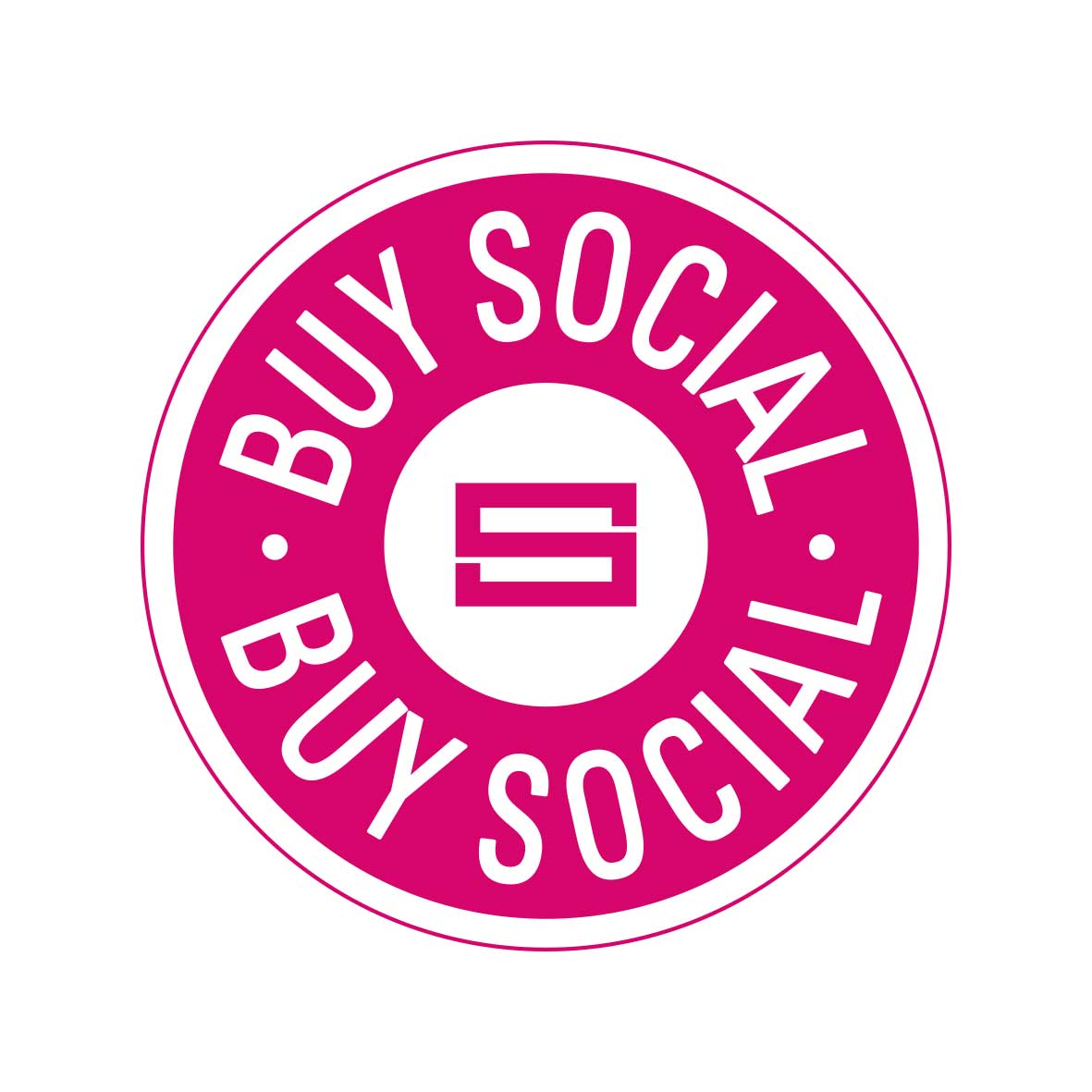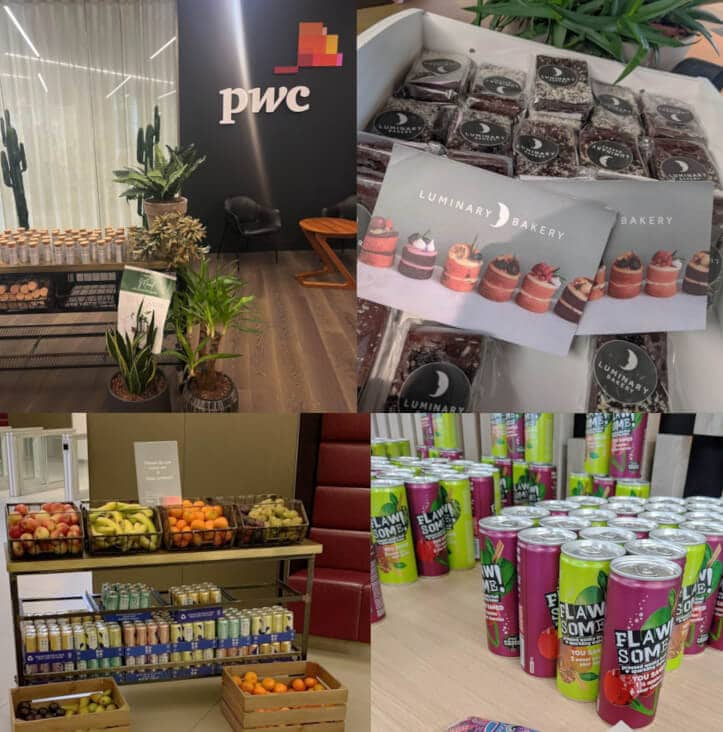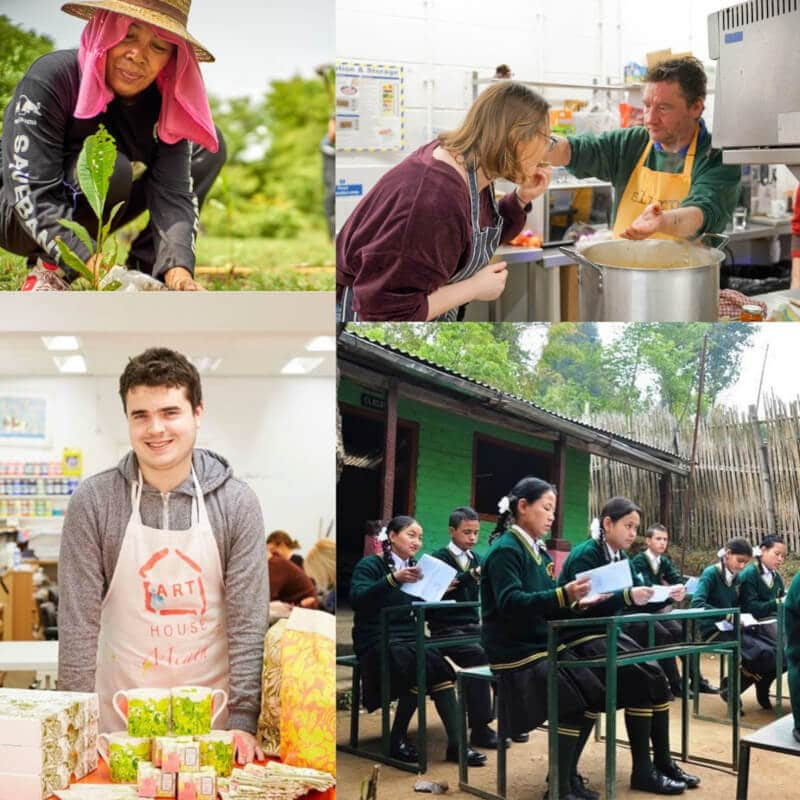We formalised our support for the social enterprise sector as part of our responsible procurement programme in 2016 as a founding member of the Buy Social Corporate Challenge (BSCC), a joint venture with Social Enterprise UK, the Cabinet Office and the business world. Its aim? To harness the spending power of business to realise greater social and environmental benefit. Buying from social enterprises empowers communities, creates opportunities for vulnerable people and supports our commitment to transition to a net zero and circular economy, in line with our Purpose and our values. Since then, we’ve spent over £1 million annually with close to 50 social enterprises.
Our Buy Social strategy is made up of a number of strands, which include:
- establishing fair, accessible and open procurement processes
- working with Social Enterprise UK and our key suppliers to find prospective social enterprises
- offering our commercial expertise and financial support to facilitate successful commercial engagements
- raising awareness of social enterprise amongst our people, suppliers and clients
- measuring our impact of buying social

Working with Social Enterprises
Buying from social enterprises empowers communities, creates opportunities for vulnerable people and supports our commitment to transition to a low carbon and circular economy. Hear about the impact of our relationship from some of the social enterprises in our supply chain in the four films below:
Our approach
Our approach to buying from social enterprises involves three complementary steps.
Opportunities and risks
There can be risks associated with buying from social enterprises compared to larger, well established suppliers. Some social enterprises may be less familiar with the standards and controls used by big businesses, so we collaborate to ensure the quality and security we need can be delivered in ways that are not overly burdensome for smaller start-ups. Another risk relates to the delivery capacity of smaller social enterprises, which may not—initially—be able to offer continuity of supply across our whole UK business. So, we adopt a ‘multi-local’ approach, and buy from social enterprises in categories that are not ‘business critical’ and where alternatives exist.
On the whole, however, we feel that the opportunities outweigh the risks. ‘Buying social’ fits with our commitment to diversity and inclusion, encouraging social mobility and supporting disadvantaged groups in society. It also inspires our people, engendering pride in the business. And, it complements our community affairs programmes, creating synergies that increase the impact of our work in both areas.
Programmes
Social enterprises have formed a key pillar of our community programme for several years, and we’ve established a range of ways to ‘buy social’.
Operational procurement
We procure goods and services from a variety of social enterprises to support our office operations, boost employee engagement and enhance our client marketing. Examples include:
- Mediorite is a creative agency that provides training and opportunities for marginalised young people to gain experience in the creative industry. They’re one of our go-to suppliers for video and photo services and have produced a video library for PwC over the course of our five year relationship, including the recent Social Entrepreneurs Club film.
- Auticon provides data and analytics services. All their consultants are on the autism spectrum and have unique cognitive strengths, such as attention to detail, pattern recognition and logical analysis.
- Rubies in the Rubble supply the ketchup used in our office restaurants. Every year millions of tonnes of food is wasted because it is the wrong size, misshapen or has blemishes. Rubies in the Rubble use this perfectly edible fruit to make delicious condiments that taste good whilst helping the planet at the same time..
- We continue to work with our corporate merchandise provider to offer an increasing number of social enterprise products. Now available are hand-made chocolates from Harry Specters, who provide employment opportunities for people on the autism spectrum and macaroons from Miss Macaroon, who train and employ young care leavers and ex-offenders. As approved suppliers to our corporate merchandise partner, these social enterprises now have access to a wider range of potential corporate customers.
Case studies
Moments of Joy
As we emerge from the pandemic and our people return to our offices, this presents new opportunities to engage with social enterprises in our supply chain. Our ‘Moments of Joy’ initiative has been rolled out across all offices, surprising our people with a treat; a moment of joy to celebrate being back collaborating together in our buildings.
Social enterprises are playing a key part in this project, with delicious brownies from Luminary Bakery who support women who have had a social and economic disadvantage and refreshing drinks from Flawsome and Dash Water who reduce food waste by using ‘wonky’ fruit in their products. Other moments consisted of fruit from Fruitful Office who plant fruit trees in Malawi and desktop gardens that were supplied by Social Supermarket.
Using the fantastic products that social enterprises offer as part of this initiative is just one way that we have been incorporating social enterprises into our supply chain.

Buying Social at Christmas
The festive period looked different in 2020. A different approach was required to bring teams together for their holiday events as in-person events were no longer an option. Customisable hampers containing selection of edible social enterprise treats and a personalised message were mailed directly to our people from Social Stories Club.
Social Stories Club finds products for their hampers bursting with positive stories of social impact, typically you might find speciality loose-leaf tea from Tea People, Fairtrade Divine Chocolate bars, Dash Water, chutney from Rubies in the Rubble, handmade soap from Arthouse Unlimited, hot chocolate from Cafe Direct and more in their hampers. All of these social enterprises put their social and/or environmental mission at the core of their business.
“PwC has been an incredible support from the start. They have provided excellent advice and expertise, met with us personally to find out more about what we do, and have made game changing orders that have helped us grow to where we are now. This support has allowed us to make our first hires providing jobs for those furthest from the labour market.”








